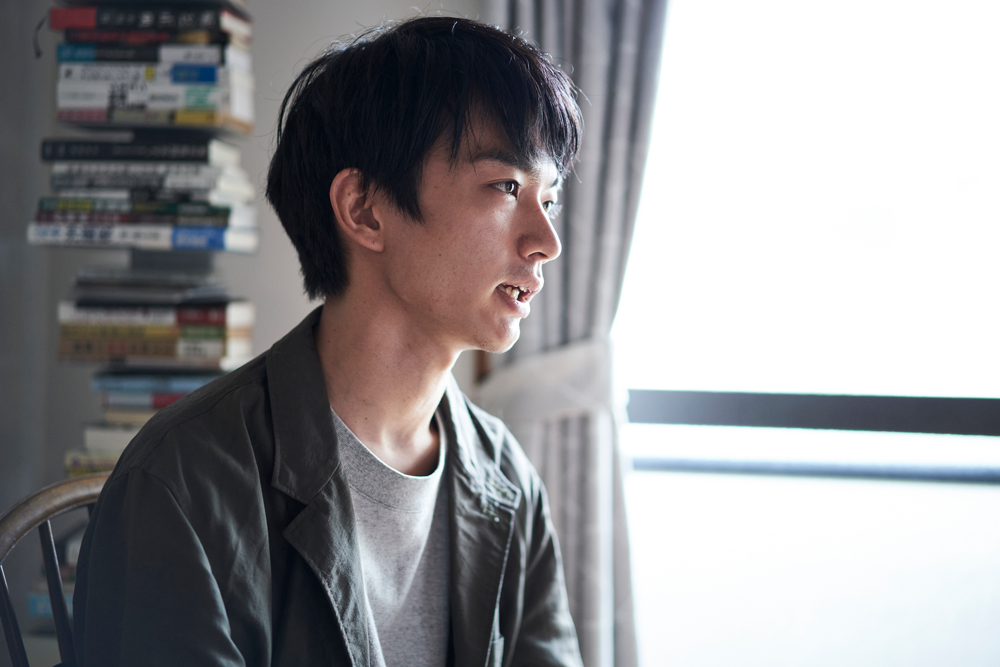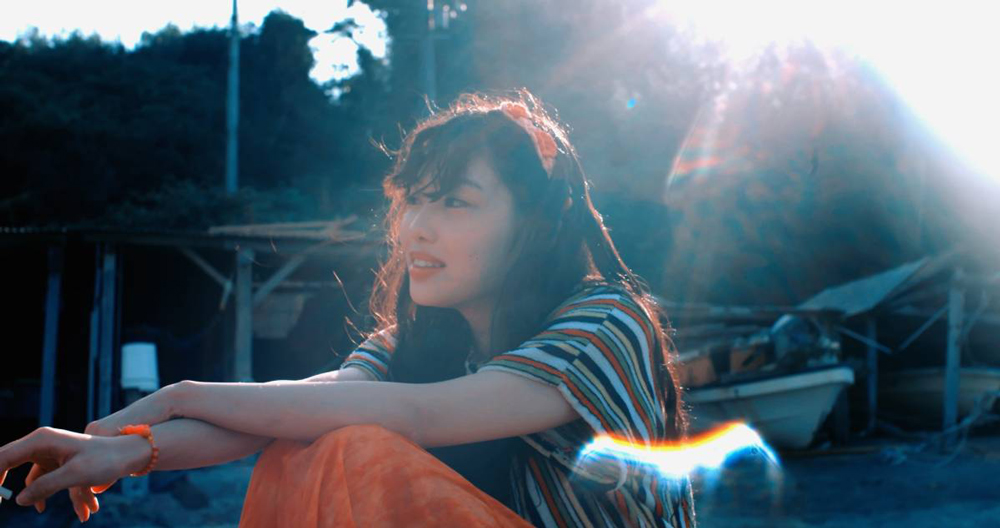!["Backlight" Director Ren Sudo A world that is too divided and its sense of crisis [Director's Interview Vol.127]](https://cinemore.jp/images/10bbddc389af832280cb14d79bfbc39d8c2939f78b0cb8ea8f880f9a9e8bc670.jpg)
"Backlight" Director Ren Sudo A world that is too divided and its sense of crisis [Director's Interview Vol.127]
An indivisible “world”
Q: Personally, there's another thing that stands out to me, and it's the discussion scene.
Sudo: That's what I thought.
Q: Oh, have you already received a lot of questions?
Sudo: No, no, that's not the case at all. That's the point I want to talk about, so I'm really happy.
Q: Good. I was relieved (lol). In that argument scene, it was very impressive to see Miko intervene. I think this was an absolutely must-see scene, so I would like to know what your intentions were in including that scene.
Sudo: If there's anything that symbolizes this movie, it's that scene of discussion, and Miko's back as she stands up to it. I put all of my doubts and ambiguous feelings into that scene. And here, too, is a scene that goes beyond the play's imagination (script).
In the original script, Miko mutters, ``All of my relatives died in Pika.'' It was a scene where the tweet was simply ignored by the young people who were discussing it. However, once filming began, the young people who were discussing it got really heated, and a tremendous amount of energy was born there. The content of the discussion was not specifically written in the script, but was based on the actual words of the young people who appeared in the film, but the discussion rose up like the flames of a bonfire that was burning on the spot. . Then, Miko was overwhelmed by the force and her lines were drowned out.
Since the person making the argument has gone beyond the script, Miko cannot compete unless she goes beyond the script as well. Therefore, I instructed Miko to do something to stop that discussion. On the other hand, I asked those who were discussing the matter to continue the discussion, saying, ``There's no need to worry about Miko.'' If we get too worried about each other here, we'll lose the momentum we've gained.
In that scene, we only filmed Miko from the back. I decided that from the beginning, I didn't want to show Miko's face, but I wanted to show what she was carrying. I wanted my back to do the talking. As a result, Miko did a great job of shouldering everything on her shoulders.

“Backlight” Director Ren Sudo
Here, I wanted to do a scene where the war experience and the pain of people seep into everyday life, but I never expected it to be this intense. I have young people discuss nuclear armament, and Miko's family's experience with the atomic bomb comes into play. There is a moment when reality begins to break into theoretical theory. However, there is also something like the energy that comes with theoretical ideas, and both of these are things that I personally have. In short, an indivisible world is emerging there. I wanted the audience to be present and think about it together.
My basic ideas are that I am against war, against nuclear weapons, and against the amendment to Article 9 of the Constitution, but I am afraid that if I become too obsessed with these ideas, I may not be able to hear other people's opinions. did. I wanted to create a scene where I was disturbed. It was important for me to suddenly become involved in discussions about topics that I would normally shut my ears to.
Q: I think discussions like that would start out of the blue in real life, but it didn't feel out of place when I watched it, and it left a strong impression on me. The unexpected nature of the character Miko came out, and I felt like she was struggling against the contradictions she faced in real life.
Sudo: That's right. I may have been struggling.

© 2021 “Backlight” FILM
Q: In the drama “About the Current Crisis and My Likeability” (21), written by Aya Watanabe, there is a scene in which the boss of the main character, played by Tori Matsuzaka, says, “I hate being right!” For some reason, I suddenly remembered that line. I understand what you're saying because a correct argument is just a correct argument, but you could say it's a feeling full of contradictions.
Sudo: That's exactly a contradiction, isn't it? I have been close friends with Mr. Watanabe on a regular basis, and I have been influenced by his way of thinking, and I have learned deeply from my own experience that if you focus solely on one thing, your words won't reach you.
Q: I think it's very important that you put that feeling into this movie.
Sudo: I think I probably wanted to portray the indivisibility of the world in ``Backlight.'' The natural and free-spirited Miko is surprising, the sincerity of Yoshioka seems to be reversed, the relationship between Akira and Fumie is no longer one-sided, and the shape of the world changes. I am conscious of the ambiguity, contradiction, and indivisibility that there is more than just one thing.
So, on the other hand, I also feel a sense of crisis about the world being taken too seriously. It's the same with war, and maybe even with the movie industry. I feel like that sense of crisis is embedded in this movie.

